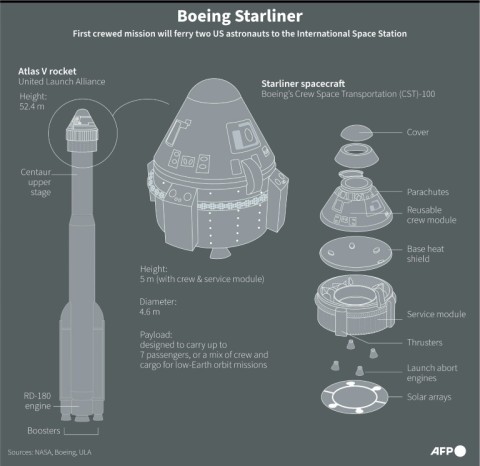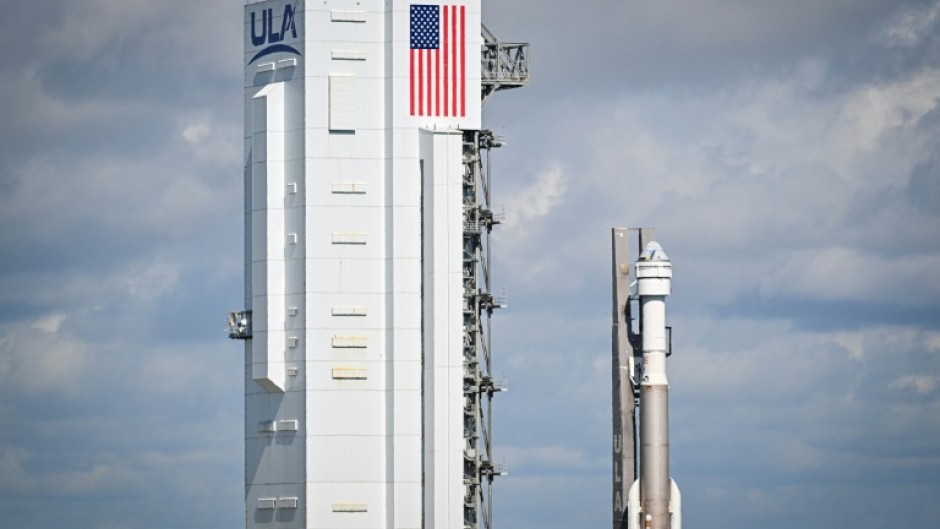WASHINGTON - After years of delays, Boeing's Starliner capsule is set to ferry astronauts to the International Space Station (ISS) on Monday, a milestone for the US aerospace giant and NASA.
The flight, a final test before Starliner takes up regular service for the space agency, is critical for Boeing, whose reputation has suffered of late due to safety issues with its passenger jets.
For NASA, the stakes are also high: Having a second option for human space flight in addition to SpaceX's Dragon vehicles is "really important," said Dana Weigel, manager of the agency's International Space Station program.
Astronauts Butch Wilmore and Suni Williams are set to take off from Cape Canaveral at 10.34pm Monday if favourable weather predicted for the launch continues to hold.
Starliner will be propelled into orbit by an Atlas V rocket made by United Launch Alliance, a Boeing-Lockheed Martin joint venture.
Once in space, one of Wilmore and Williams's tasks will be to temporarily pilot the craft manually, in a test.
The astronauts, both Navy-trained space program veterans, have each been to the ISS twice, travelling once on a shuttle and then aboard a Russian Soyuz vessel.

Starliner is scheduled to arrive at the ISS at about 5am on Wednesday and remain there for a little over a week. Tests will be performed to check it is working properly, and then Williams and Wilmore will reboard the capsule to return home.
A successful mission would help dispel the bitter taste left by the numerous setbacks in the Starliner program.
In 2019, during a first uncrewed test flight, the capsule was not placed on the right trajectory and returned without reaching the ISS.
Then in 2021, with the rocket on the launchpad for a new flight, blocked valves forced another postponement.
The empty vessel finally reached the ISS in May 2022. But problems since then have delayed Monday's crewed test flight, necessary for the capsule to be certified for NASA's use on regular ISS missions.

